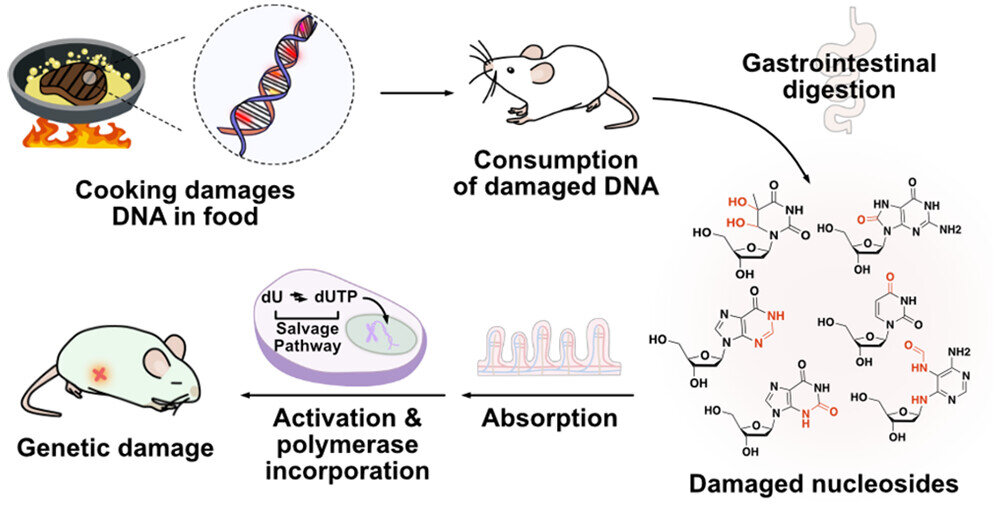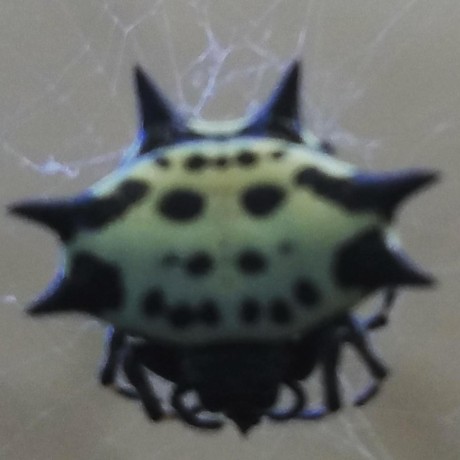deleted by creator
Damn I eat meat almost everyday. I guess I should start a vegetarian diet .-.
Or just reduce your meat consumption. Daily sounds like a lot. I love meat but I don’t think I usually have it more than 2-3 times a week.
deleted by creator
I don’t know if I could do that honestly. I tried once but I love meat way too much. I think I’m going to reduce my meat consumption to once per week or so, and as soon as lab grown meat catches on, I’m only going to eat that kind of meat.
deleted by creator
Heads up: long rambly comment!
Personally I do still eat meat, but I eat much less than I used to. I quite like Beyond’s sausage products (links and breakfast-style). I was using a lot of their ground beef for a while, but it continues to be not quite beef-like enough to be a 100% substitute for me. I feel like they went for something that would taste really good as a burger at the expense of tasting a little weird as, for example, a bolognese. Still, I do continue to buy it.
I haven’t tried any substitute chicken nuggets or anything, but that’s also not really the kind of thing I cook anyway. A good chicken substitute for me personally would have to be one that holds up well in a soup, and I see that as being probably pretty tricky!
One that I just tried for the first time this week was the beefless bulgogi that Trader Joe’s sells. It was delicious, really excellent with some rice! Texture isn’t quite the same but not in a bad way.
Another thing I’ve had my eye on is plant-based seafood substitutes, mostly from a sustainability point of view, but it seems like most of the ones out there are trying to replicate fish that are already fairly sustainable, like shrimp and salmon.
deleted by creator
Thanks for the references! Next time I’m at the grocery store I’ll poke around and see if I can find any of those chicken substitutes! A lazy chicken soup actually sounds pretty appealing: the from-scratch method gives great results, but it does take a surprisingly long time!
A few things that caught my attention:
- Heat damaged meat had more damaged DNA than a heat damaged vegetable.
- Lab grown meat really soaked up the damaged DNA from meat/veggies
The article does reinforce the commonsense that being a vegetarian is healthier for you than eating meat… But eating fried veggies still absorbs that damaged DNA into your system.
I think you misunderstood the article. About your points:
1 - “…potatoes, for instance, incurred less DNA damage at higher temperatures than meat for unknown reasons.”
It’s only at higher temperatures, and they only tried two kinds of meat and one veggie (potatoes).
2 - It doesn’t talk about lab-grown meat at all. It mentions lab-grown cells, which are
probably bacteriavarious types of human cells that they exposed to the heat-damaged DNA, and they absorbed the damaged DNA. (thanks @appel@whiskers.bim.boats for the correction)Also I don’t see how “being a vegetarian is healthier” is commonsense, but that’s besides the point. The article doesn’t reinforce any of that. It just says that:The study does reference another study about how low meat consumption can lead to less cancer. And they say this would support their findings of less damaged DNA in plant material, therefore causing less genetic damage.
In summary (see @higgsbi@beehaw.org’s comment here for a much better one):
a) Food gets DNA damage when heated up (even boiling).
b) That DNA damage can be absorbed by lab-grown cells and also by mice
c) They speculate cancer and genetic diseases are more probable because of the damaged DNA.
They have a very small food sample size, and didn’t try many methods of cooking (they admit all of this). Which is to say: they have no idea yet how this impacts people, if at all.
I wanted to check which cells they used, because using bacteria would give it no power at all, as bacteria have very different uptake, DNA damage tolerance and DNA repair mechanisms. they used:
- SW620: a epithelial cancer cell line from a 51 yr old male’s colorectal cancer
- HEK293 an immortalised cell line from a human embryo kidney
- MCF-7 a breast cancer cell line.
- HeLa the infamous HPV cervical cancer cell line.
So they are all human cells, and the SW620 cells would be somewhat similar to our gut epithelial cells, as they once were the same. It’s hard to be certain though, because immortal cell lines can accumulate many differences since they were isolated.
The SW620 cells did take up the damaged nucleosides, and more so than HeLa or MCF-7.
Thanks for the clarification! I definitely should’ve read the actual paper before commenting :)
I edited my comment to reflect this
deleted by creator
I’ll have you know we don’t just eat Oreos. That’s crazy. I have a (very) well rounded diet of Fritos, Lay’s potato chips, nutter butters, sour patch kids… And Oreos.
deleted by creator
Oh, I see! Sorry, I only read the linked summary, didn’t notice there was more!
They do reference a study about the risk of cancer depending on diet, and that it would support their conclusion that plant matter produces less DNA damage (therefore, less cancer on vegetarians). I see now where the other comment was coming from, thanks.
“eyebrow raising” indeed. Makes me think of the following questions:
- Why is the amount of DNA in plants so much lower than in animal tissue? Is this because plant cells are larger? (some plants like wheat have very large genomes, I wonder how that affects it too)
- Are cells lining the intestine replaced frequently? and which population of stem cells do they come from? this would reduce the affect, but I suppose, not eliminate it. If a mutation still occurred in a checkpoint gene, could that cell still become cancerous, even if it is terminally differentiated?
thanks for posting
Why is the amount of DNA in plants so much lower than in animal tissue? Is this because plant cells are larger? (some plants like wheat have very large genomes, I wonder how that affects it too)
They are quoting the DNA concentration in g per kg of dry matter.
Plant cells have cell walls of cellulose, hemicellulose and pectin, which adds some dry weight that is absent in animals.
In addition, these seeds and tubers etc. we eat tend to be energy storage organs with a whole bunch of starch vs. not very much regular cell mass. It would be the same way if you ground up bone tissue and measured the DNA concentration.
Thanks for the detailed points and clarification :)
So, what about slow cooking meat? I guess that’s still in those temperature ranges, huh?
deleted by creator
Yeah I’d love to know whether to cook my food
Same. I mean I’ll eat it raw if it helps.
Forgive me if I’m reading sarcasm into your comment where it wasn’t intended, but raw food diets are definitely a thing, and there are people who choose to abide by them. It’s not a diet I would personally choose, but for some folks it works.
Yeah I’ll probably consider it if I get to not have cancer!
deleted by creator
How high is too high? Didn’t early humans unlock the next tier by basically burning meat?
deleted by creator
Seems potatos were less a risk cooked at high temperatures. more reason to be vegan for me! lol. Also, if you want to eat a raw food diet (not me) - much safer to keep it vegan and not eat raw meat lol. I dont agree that everyone can easily meet a balanced diet eating nothing but raw foods. I need beans! you’ll never take my beans away from me
deleted by creator
So maybe eat more cold potato salads? I think I can make that sacrifice, for my health of course. Thank you!
Would I be correct in assuming that milk and yogurt wouldn’t be affected by this?
deleted by creator










